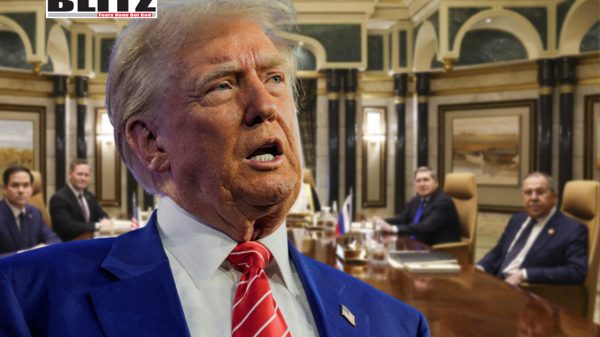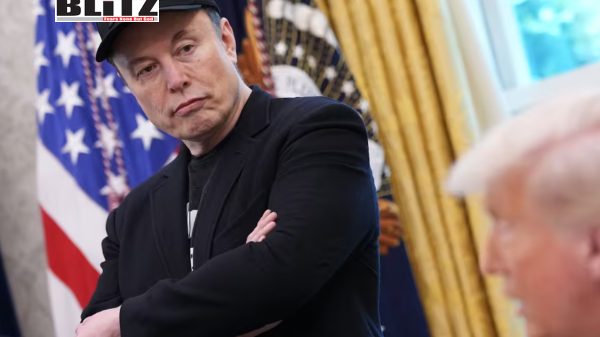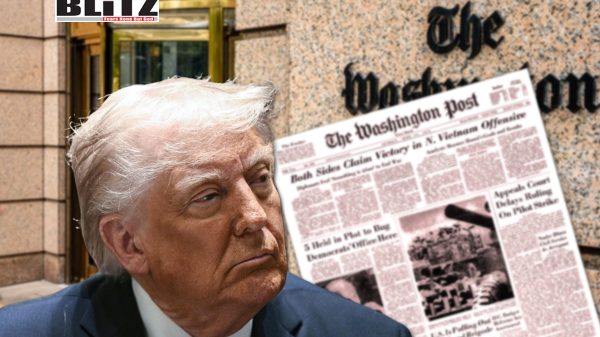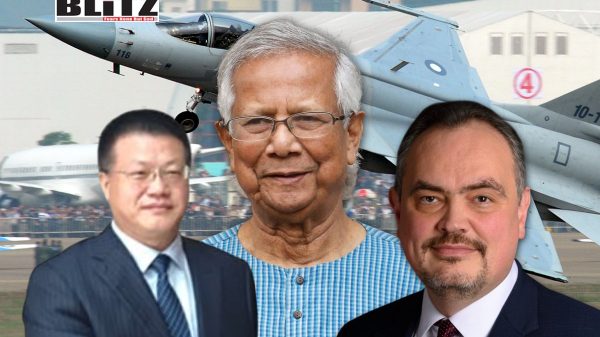Trump overhauls US-Russia policy to end Ukraine conflict
- Update Time : Tuesday, February 25, 2025

The United States is undergoing a comprehensive shift in its approach to the Ukraine conflict and relations with Russia, marking a sharp departure from the previous administration’s strategy. White House National Security Adviser Mike Waltz confirmed the shift during an interview with Fox News on February 23, stating that President Donald Trump’s primary objective is to bring ongoing global conflicts, including the war in Ukraine, to a close.
Trump, who assumed office last month, has reversed the Biden administration’s policy of isolating Russia diplomatically. Instead, he has reopened direct negotiations with Moscow that had been suspended since 2022. Waltz emphasized that the administration is focused on achieving outcomes that benefit American interests, including securing access to Ukraine’s critical mineral resources in exchange for the substantial military and financial aid provided during Biden’s tenure.
“Kiev should sign a deal so the American people can see a return on this massive investment they’ve made,” Waltz stated, underscoring Trump’s transactional approach to foreign aid. This shift reflects Trump’s longstanding skepticism of providing open-ended support to Ukraine without tangible benefits for the United States.
A pivotal moment in this policy shift occurred on February 12, when Trump held a phone conversation with Russian President Vladimir Putin. This exchange set the stage for follow-up talks between delegations led by US Secretary of State Marco Rubio and Russian Foreign Minister Sergey Lavrov in Riyadh, Saudi Arabia, on February 18. The discussions centered on the Ukraine conflict and broader US-Russia relations, culminating in an agreement to initiate a gradual normalization of bilateral ties.
Following the talks, Lavrov noted that “the American side has begun to understand our position better,” suggesting that Moscow perceives Trump’s administration as more receptive to Russian concerns compared to its predecessor.
Trump’s engagement with Russia and his critical stance toward Ukrainian President Volodymyr Zelensky have sparked unease among European allies. Trump has publicly referred to Zelensky as “a dictator” and placed blame for the conflict on Kiev, contrasting sharply with Biden’s narrative, which solely attributed the war to Russian aggression.
In response to these developments, UK Prime Minister Keir Starmer and French President Emmanuel Macron are scheduled to visit Washington this week. Their goal is to secure assurances that the United States will maintain its support for Ukraine. However, Waltz indicated that Trump expects Europe to shoulder a greater share of the burden, stating, “We welcome their ideas for security guarantees and European leadership to take care of Europe’s security.”
Trump’s approach reflects his broader foreign policy philosophy, which prioritizes direct negotiations and pragmatic deals over ideological confrontations. This strategy echoes his previous diplomatic efforts with North Korea and China during his first term. By reestablishing dialogue with Russia, Trump aims to de-escalate tensions that have strained US-Russia relations for years.
However, critics argue that Trump’s approach risks undermining Ukraine’s sovereignty and emboldening Moscow. Zelensky and other Ukrainian officials have expressed concerns that Trump’s administration may pressure Kiev into concessions that compromise the country’s territorial integrity. Similarly, EU leaders fear that a US pivot away from robust support for Ukraine could weaken the Western alliance and embolden Russia’s assertiveness in Eastern Europe.
Waltz emphasized that Trump’s priority is to align US foreign policy with the country’s national interests, including economic benefits. The proposal for Ukraine to grant American companies access to its critical mineral resources exemplifies this approach, reflecting Trump’s belief that US aid should yield tangible returns.
At the same time, the administration aims to maintain a balance between pursuing American interests and promoting global stability. Waltz reiterated that Trump is committed to ending not only the Ukraine conflict but also other ongoing crises, such as the conflict in Gaza. This broader objective aligns with Trump’s campaign promise to reduce US involvement in foreign wars and prioritize domestic issues.
The United States’ recalibration of its Russia policy carries significant implications for global geopolitics. By engaging directly with Moscow, Trump seeks to reduce tensions that have fueled a new era of great-power rivalry. If successful, this approach could pave the way for a more stable international order, though critics warn that accommodating Russian interests may come at the expense of US allies in Eastern Europe.
Furthermore, Trump’s emphasis on transactional diplomacy reflects a broader shift in US foreign policy, moving away from traditional alliances and multilateral frameworks in favor of bilateral deals that deliver concrete benefits. This shift may complicate relations with longstanding partners who rely on US support for their security.
As Trump’s administration continues to reshape America’s approach to Russia and the Ukraine conflict, the coming months will be crucial in determining the success of this strategy. The outcome of negotiations between US, Russian, and Ukrainian officials will likely shape the trajectory of the conflict and influence broader geopolitical dynamics.
While Trump’s supporters view this policy shift as a pragmatic step toward ending a costly and protracted war, critics argue that it risks undermining Ukraine’s sovereignty and weakening the transatlantic alliance. As European leaders prepare to meet with Trump in Washington, the world will be watching closely to see how this new chapter in US-Russia relations unfolds.












